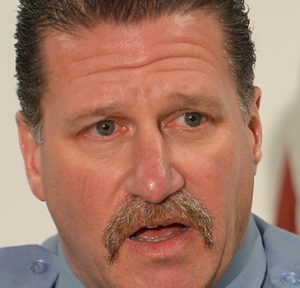Cam Gordon’s attempt to add more oversight to the Minneapolis Police Department seems to have failed for the moment. The Charter Commission has said it will not hold hearings on the proposed amendment in time for it to be on the November ballot.
Gordon was proposing: “Shall the Minneapolis City Charter be amended to remove from the Mayor complete power over the establishment, maintenance, and command of the police department, and to provide instead that such power over the police department be shared between the Mayor and City Council, as provided for other charter departments.”
Critics of the proposal said it would be confusing for the MPD to have 14 bosses, even though every other department in the city has 14 bosses—Public Works, the City Attorney, Planning, etc. They said it went too far.
I think it didn’t go far enough. I think the MPD has to begin to realize that they have 500,000 bosses. They work for the people who live and work in this city. We pay their salaries. We are the people they are supposed to “Protect and Serve.”
And, yes, that means they were supposed to protect and serve Thurman Blevins and Jamar Clark and Terrance Franklin instead of killing them. Did the MPD respect the civil rights of these victims? Were they given the same respect that someone who is white would have been given?
The county attorney looked at the facts in these three homicides by the MPD and declined to prosecute the officers. Conviction of police officers for killing young black men is extremely rare. An officer need only claim he thought he was in danger to be given the benefit of the doubt by a jury. Civil suits by the victims’ families drag on for years. But, after the county attorney has established the facts in the matter, there is another avenue to justice.
Every action by any officer of the MPD is subject to review by his or her superior officers, and the chief of police has the responsibility to review the facts in the killing of Blevins, Clark and Franklin and determine whether the officers involved respected the civil rights of their victims.
I raised this question of accountability in the deaths of Terrance Franklin and Jamar Clark with Chief Arradondo over a year ago at a community meeting sponsored by Council Member Alondra Cano. He said he’d like to talk to me about it. He shook my hand and told me to call his office and make an appointment. I did. I made the appointment. I waited for him. He blew me off.
Cano is chair of the Public Safety Committee of the City Council. Her committee has the responsibility to review the actions and the budget of the MPD. She has a responsibility to conduct a public hearing to review Chief Arradondo’s report on police conduct in the killing of Thurman Blevins. We all need to hear whether correct police procedures were observed. We all need to know the boundaries for socially acceptable behavior, and we need to know whether those boundaries are the same for black and white citizens of Minneapolis.
If there is ever to be public accountability of the police in Minneapolis, then it must begin with a public hearing to review police conduct in the killing of Thurman Blevins.
We have a right to know!
And we have a right to know how much we’re paying these public servants to beat, harass and murder us.
Lt. Bob Kroll is head of the Minneapolis Police Federation—the union of police officers. He’s also the head of City Heat, a motorcycle club of Twin City police officers linked to City Heat in Chicago. They fly Confederate flags and wear Nazi medals. His racist values and actions were the most prominent subject in the 2009 racial discrimination lawsuit that five Minneapolis police officers (including Arradondo) brought against the City.
I want to know how much we’re paying him.
And we need a public hearing on city rules for using city uniforms to pimp candidates for public office. Did Kroll have a legitimate right to use the uniform of a Minneapolis police officer to promote the candidacy of a political candidate? The Public Safety Committee has a responsibility to hold a public hearing to define the policy and insure accountability.
I want to know how much we’re paying officers to sit behind desks and shuffle paper.
I want to know how much it costs us when the chief wants to promote his buddies.
We have a right to know.
A year ago I wrote to over half a dozen city departments for more than two months to find the answer to a simple police budget question: “Could I see a budget breakdown of MPD Community Engagement General Fund: $2,515,179 and the source of Other Funds: $827,400, and the Special Crimes Investigations General Fund: $14,318,003 and the source of Other Funds: 1,013,028?”
Why isn’t a line item budget of the City of Minneapolis available online? Why can’t we find out how our money is being spent?
It is the responsibility of Council Member Cano to make that information available to the public.
From “America’s police are still out of control” by Tony Bouza—Southside Pride, August 2017:
Can the police be controlled?
Absolutely—if they can be fired for cause; personally sued and held accountable; carefully trained and supervised; and if the cops reflect the society it polices. Note I’ve said nothing about improving salary or benefits. Your generosity is such that, in addition to subsidizing any behavior, however gross or even criminal, you actually pay them well and afford great benefits. Congratulations.
PHOTO CAPTION: Lt. Bob Kroll























